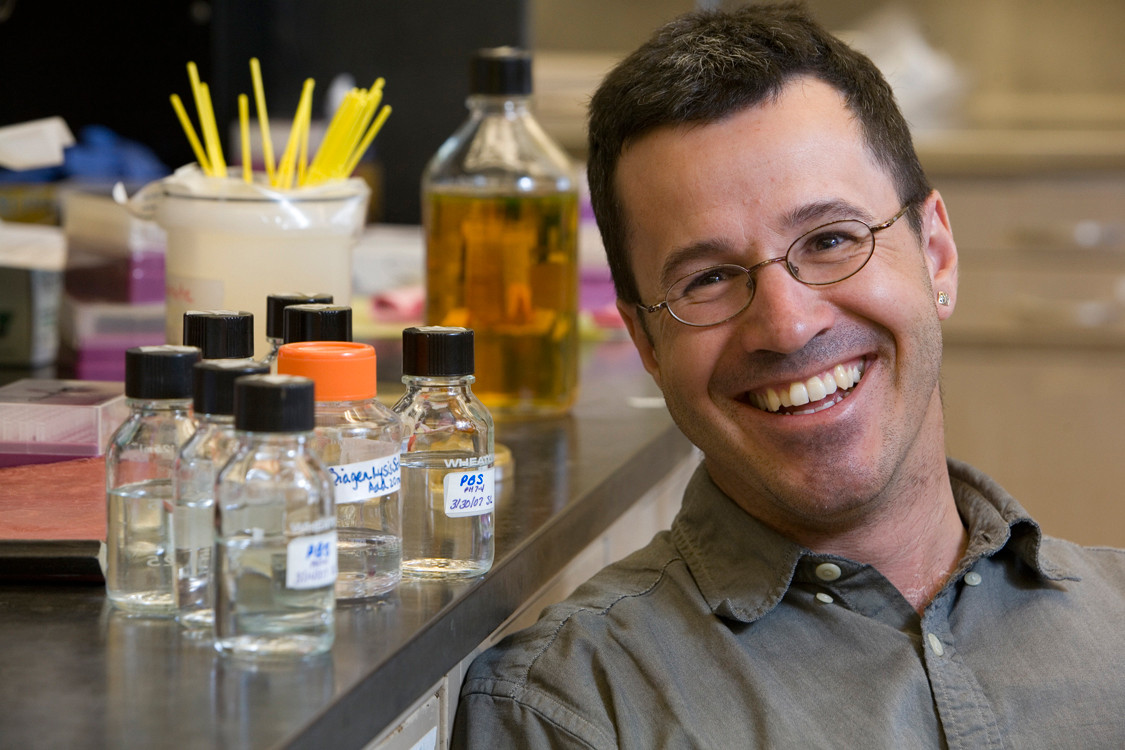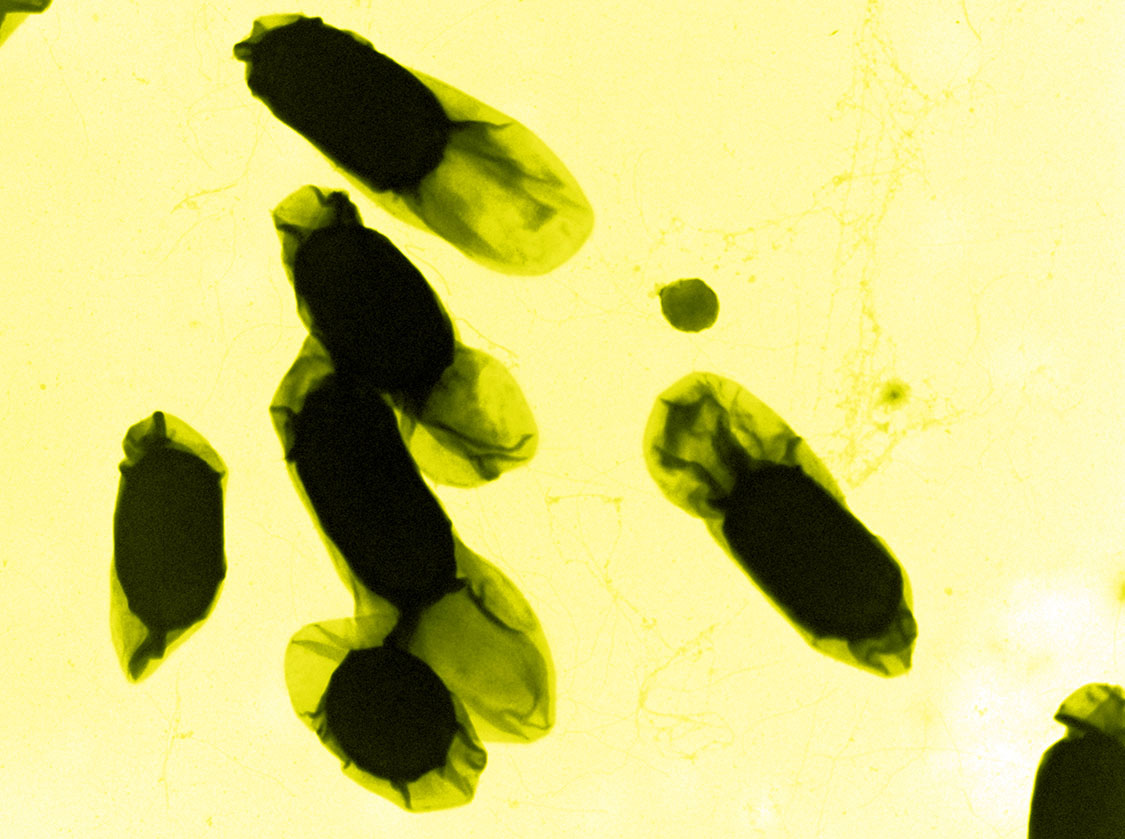Newly discovered bacterium named for Martin Wiedmann
By Blaine Friedlander

To honor a Cornell researcher who keeps our food supply safe, a recently discovered spoilage bacterium has been named for Martin Wiedmann, the Gellert Family Professor in Food Safety. The microbe was formally announced Aug. 12 in the International Journal of Systematic and Evolutionary Microbiology.
The spore-forming bacillus strain – formerly known as FSL W8-0169T – now enjoys a new moniker: Bacillus wiedmannii – pronounced “weed-man-ee-eye.”
Collected from raw milk stored at a dairy powder processing plant silo, the microbe was detected by graduate students and staff using a new whole-genome research tool at Cornell’s Food Safety Laboratory and Milk Quality Improvement Program.
Laboratory students and staff suggested the new nomenclature, and Wiedmann appreciated the gesture, as his father had three plant species named for him. Walter Wiedmann, a high school biology teacher with a doctorate in botany, studied plant taxonomy and ecology; the species Campanula wiedmannii (1970), Petrocoptis wiedmannii (1968) and Limonium wiedmannii (1986) honor him.
“It’s a fantastic feeling to have students and staff proposing to name a bacterium after you, and it’s fun to become part of a ‘family legacy’ of taxonomy, across different groups of life,” Wiedmann said.

Due to its shape and character, the new microbe is part of the Bacillus cereus group. For people who ingest the microbe, it has the potential to cause food poisoning, according to postdoctoral researcher Jasna Kovac and Rachel Miller, doctoral candidate in food science and the announcement’s lead author. While pasteurization kills the pathogen, making milk safe to drink, the spores – although inert – can survive in refrigerated conditions. B. wiedmannii creates toxins in the human gut that form cellular pores, making people sick with diarrhea.
This is the first Bacillus cereus group microbe discovered since 2013, when Bacillus toyonensis was found, Miller said.
“This discovery illustrates the breadth of expertise we have in our group to use modern approaches to address food safety related issues,” Wiedmann said . “This also shows how these new tools provide insights into the food-associated bacterial diversity that still remains to be discovered.”
Joining Miller and Kovac on the research, “Bacillus Wiedmannii Sp. Nov. is A New Psychrotolerant and Cytotoxic Bacillus Cereus Group Species Isolated from Dairy Foods and Environments in the USA,” are doctoral candidates Sarah Beno and Laura Carroll; technician David Kent; Nicole Martin, associate director of the milk quality program; and Kathryn J. Boor, the Ronald P. Lynch Dean of the College of Agriculture and Life Sciences, and professor of food science.
In 2015, another foodborne microbe, FSL A5-0281, was named for Boor: Listeria booriae – pronounced boor-ee-eye.
“This is all meaningful to me because these new bacteria – Listeria booriae and Bacillus wiedmannii – are both based on genomics-based approaches to taxonomy,” Wiedmann said.
Media Contact
Get Cornell news delivered right to your inbox.
Subscribe